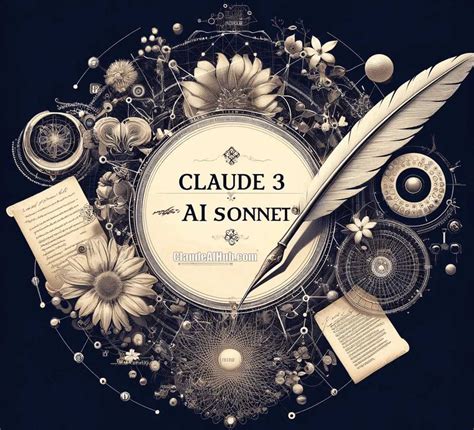In the rapidly evolving landscape of AI, various models vie for the title of the best-performing system. One newcomer making waves is Claude 3.5 Sonnet, a language model developed by Anthropic. This AI not only boasts notable improvements in language comprehension and coding capabilities but does so at a competitive speed and cost-efficiency. Reviews and user experiences suggest that this model is becoming a formidable contender for the coveted spot currently held by GPT-4. The intriguing user feedback around Claude 3.5 Sonnet illuminates several aspects that merit attention, especially if you’re pondering a switch or simply exploring the realm of advanced language models.
One critique often levied against AI models, including GPT-4 and Claude 3.5 Sonnet, pertains to their math proficiency. Davidzheng mentions how, according to benchmark studies and personal experiences, GPT-4o still has the upper hand on Claude 3.5 Sonnet for mathematical tasks. However, an interesting thread of comments reveals a fundamental debate: does your language model need to excel in math? For many users, like Legend2440, the pragmatic answer is no. They argue that a calculator or specialized tool often suffices for arithmetic, while a general-purpose model like Claude 3.5 excels where it counts—understanding and generating natural language.
A crucial differentiator emerges when considering that mathematical tasks are not confined to simple arithmetic. Davidzheng aptly points out, ‘Math is not just arithmetic,’ elucidating the need for a model that understands complex problems and can simulate logical thought chains. Ta988 further expands on this by indicating that the significance lies in tokenization and chain of thought, capabilities where Claude 3.5 Sonnet has demonstrated strong performance but with room for improvement. The practical illustration by muzani highlights how Claude 3.5 Sonnet could cogently parse through logical steps, even if it fumbles occasionally. This reveals a nuanced understanding, highly beneficial for intricate problem-solving scenarios.
Among the standout features of Claude 3.5 Sonnet is its development for coding and technical assistance. Users have compared it favorably against its more established cousins. Anecdotes from users like cyral and r2_pilot reinforce this sentiment, demonstrating how Claude’s nuanced comprehension assists in rapidly generating useful coding solutions. For instance, cyral narrates an experience of building complex animations in React with vague descriptions, showcasing Claude’s interpretative prowess. On the other hand, some users like m0zzie mention opting for Claude after getting frustrated with the GPT-4’s speed and response times, suggesting a competitor that’s not only effective but also efficient.
Exploring further, various tools have emerged to augment Claude 3.5 Sonnet’s capabilities, especially in coding contexts. Tools like Sweep, Aider, and Plandex have been mentioned as viable options for improving development workflows. User sdwr highlights how these platforms facilitate enhanced productivity, potentially revolutionizing the development ecosystem. This points to a broader trend of integrating AI into diverse software development environments, thereby transforming the way code is written, reviewed, and integrated.
Another dimension where Claude 3.5 Sonnet shines is in handling documentation and test cases. Developers appreciate how quickly and adeptly the AI can generate doc comments or write test cases, freeing them up to focus on more substantive tasks. Long conversations, as pointed out by ChicagoDave, remain a challenge across all AI models, and while Claude excels in many areas, keeping context over extended dialogues is a field where improvements are eagerly anticipated. The capacity for scaling these solutions across broader projects and teams, articulated by users like seaal and timenova, makes it a powerful tool for collaborative and large-scale efforts.
For those concerned about the AI disrupting traditional paths of learning and skill acquisition, the discussion thread provides a balanced perspective. While hdhshdhshdjd worries about AI detracting from coding as a craft, newswasboring offers a counterpoint. They emphasize that problem-solving is an evolving skill and that tools like Claude 3.5 can inspire new and diverse learning methods. This paradigm shift could democratize access to advanced coding and AI tools, leveling the playing field and fostering innovative thinking. In essence, we might be witnessing a redefinition of how skills are cultivated and applied in the digital age.
In summation, Claude 3.5 Sonnet emerges as a hidden gem in the AI space, adept at both language and coding tasks. Its cost-effectiveness and swift response time make it a viable option for developers and tech enthusiasts seeking a powerful alternative to GPT-4. While it may still have areas for improvement, the general consensus highlights its practicality and potential to redefine AI-assisted coding and problem-solving paradigms. If you’re on the lookout for a versatile AI model that can handle complex tasks with finesse, Claude 3.5 Sonnet merits serious consideration.


Leave a Reply